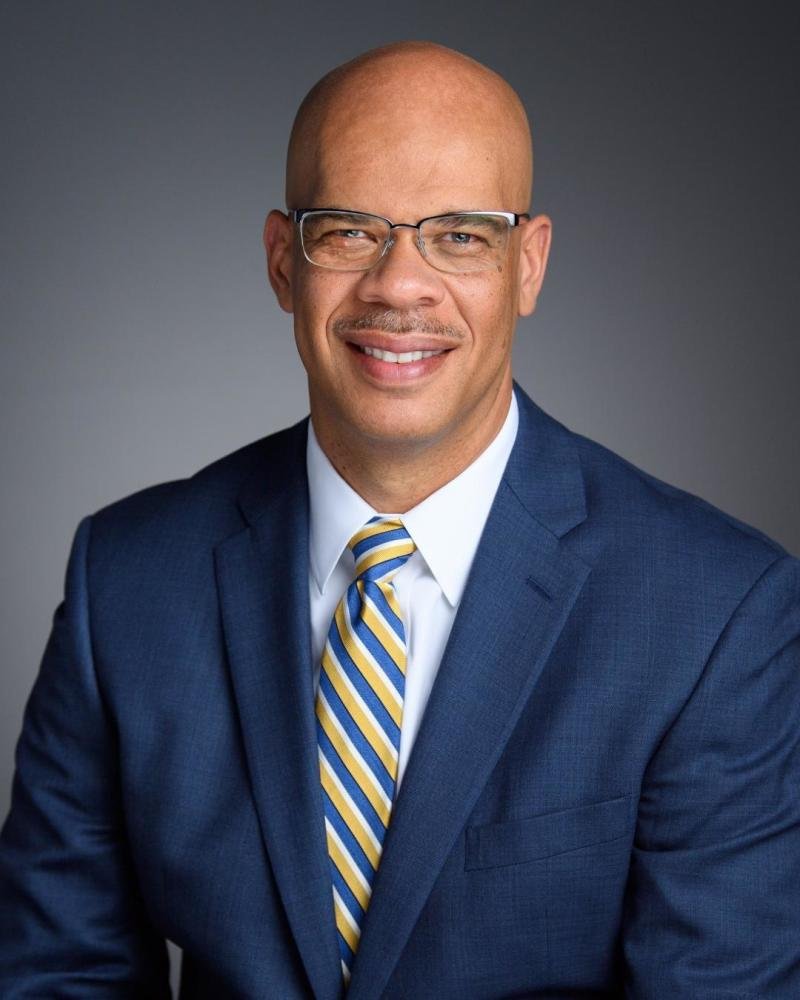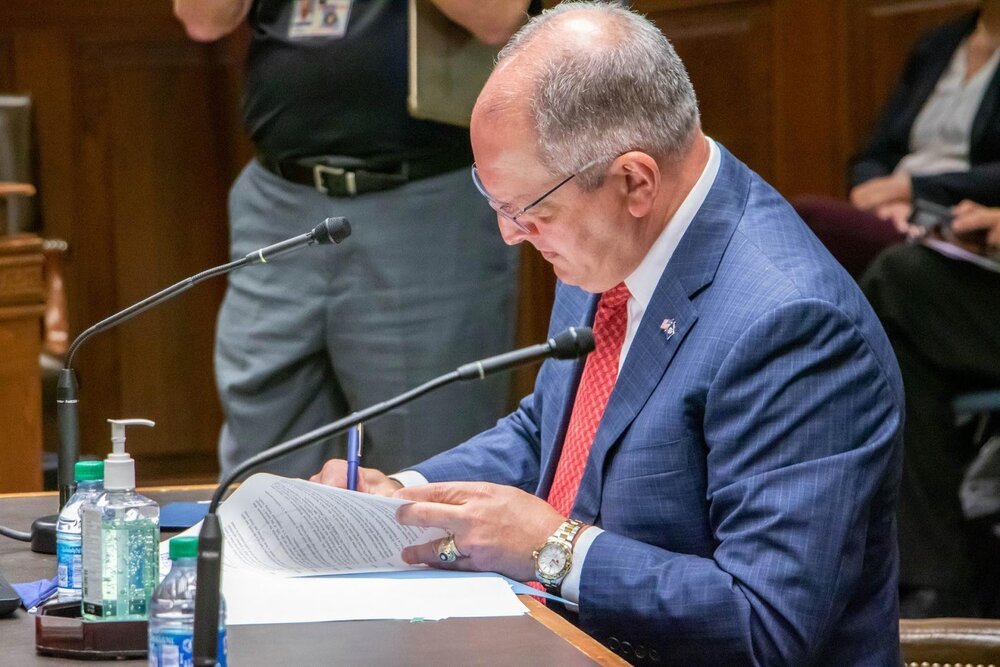Preston Castille, Jr.
CEO, Helix Community Schools; Board Chair, Center for Planning Excellence
Preston Castille is the President of Helix Community Schools. Mr. Castille practiced law with the Taylor Porter law firm for nearly 30 years before retiring from the firm where he was a Partner and member of the Executive Committee. Mr. Castille also teaches Education Law & Policy at the Southern University Law Center. He previously taught at the LSU Law School. Mr. Castille was appointed by the Louisiana Supreme Court in 2009 to serve as a Judge Pro Tempore on the Baton Rouge City Court. Prior to attending law school, Mr. Castille worked as an economist for the U.S. Department of Labor in Washington, D.C.
In October 2019, Mr. Castille was elected as the District 8 member of the Louisiana Board of Elementary and Secondary Education (BESE) and served as the chair of the School Innovation and Turnaround Committee. His district includes 14 parishes. He is a former National President of the Southern University Alumni Federation and is a current member of the Tulane Law School Dean Advisory Board and the Southern Foundation Board of Trustees.
Why did you join the CPEX board?
I joined the CPEX board so that I could be a part of some of the best of what is happening in Baton Rouge and Louisiana. Visionary planning is a long game – we must plant the seeds today for the future we want five, fifteen, and fifty years from now. CPEX is planting these seeds, bringing vision, thought leadership, and planning expertise to address Louisiana’s most pressing needs at all scales, from small rural communities to state agencies and international events. This work is critical to our shared future in Louisiana.
Why is the work that CPEX does so important?
Planning is so important. If you don’t have a good plan, you aren’t going to end up with a good product. I see every day how important it is for Louisiana communities to be able to draw upon the tools and vision of planning to chart their course forward at a time when so many things are shifting. Climate change, the pandemic, economic volatility, race and health disparities, and outmigration are all bringing big changes at a rapid pace – now more than ever, our communities need vision, hope, and a path forward to a resilient, economically vibrant future.
What CPEX project are you most proud of?
I’m especially proud of the work that CPEX is doing in partnership with my alma mater, Southern University, and North Baton Rouge’s Scotlandville community. Over the past year, we’ve deepened our relationships with community stakeholders, completed plans for Southern’s campus and Scotlandville, and we remain committed to working with the community to realize their goals for the economic revitalization, quality housing, increased walk- and bike-ability, environmental sustainability, and cultural placemaking reflected in these plans.
What changes would you like to see in your community in the next five years?
I would like to see our community leverage more our colleges and universities and the extraordinary K12 system we are developing. Southern University, Baton Rouge Community College, LSU and Fran U are incredible assets. I believe we have only scratched the surface of unleashing their potential. They all have strong leadership and are poised to continue to build upon their success.
We also have an incredible portfolio of traditional, public charter, private and parochial K12 schools. The strong continuity between our K12 and higher education systems should make Baton Rouge a great place for families and a strategic location for business and industry. I would love to see us more purposefully build communities around these great educational assets.
Simbrey Majors
Research Associate
Simbrey Majors is a Research Associate assisting in the development and implementation of new projects, conducting research, and analyzing data. Simbrey first joined CPEX in 2021 as a Smart Growth Summit Intern.
Originally from Winnsboro, LA, Simbrey received her Bachelors in Environmental Science in 2016 with a concentration in soil and water conservation from the University of Louisiana at Lafayette and recently obtained her Masters in Urban Forestry and Natural Resources from Southern University in December 2020. Her main focus and passion centers on bettering our environment and fighting for environmental equity and justice. She is determined to educate people on how environmental issues directly impact community sustainability and resiliency through community outreach and engagement. She believes education and awareness, combined with proper planning and good data, will allow people to see the importance of building climate resilient communities and cities.
How long have you worked for CPEX?
I’ve worked at CPEX for a year and a half.
How does your job fit into the CPEX mission?
My job fits into CPEX's mission because I assist in helping communities create different plans that deal with environmental issues, equity, and the built environment, along with collecting and analyzing data that can be used to help further the progression of such plans.
What does your job entail?
I am pretty much a Jill of All Trades, but I mostly help the development and implementation of new projects, conducting research, and analyzing data. I am currently leading the Gonzales Climate Action Plan as well as assisting on a few other projects.
What do you like most about your job?
What I like most is the vast array of projects that CPEX has the ability to work on.
What is the best career lesson you’ve learned so far?
You have to let your presence be known and always take initiative.
What do you like to do when you aren’t working?
When I’m not working, I take naps, workout, love on my dog, and binge watch tv shows.
What is your vision for what planning can accomplish in Louisiana?
My vision is for the State of Louisiana to take initiative and start building climate resilient communities and cities. Louisiana has the opportunity to be at the forefront of climate change strategies and be a leader in those discussions.
If there was a news story about you, what would be the headline?
One of Louisiana's Most Influential Urbanist Speaks on the Importance of Diversity, Equity, and Inclusion in Navigating the Climate Crisis.
Three words to best describe you:
Adventurous, Inquisitive, Ambitious.
Adaptive Governance Initiative
Briefly describe CPEX's work on The Adaptive Governance Initiative (AGI).
The Adaptive Governance Initiative (AGI) is an effort led by the state’s Chief Resilience Officer and CPEX to guide and support state agencies as they identify the impacts of coastal change on their work and prepare adaptation actions that respond to those risks. This work is supported by Executive Order JBE 2020-19, which reiterates that coastal resilience is a priority for the state of Louisiana. It expresses a vision for all agencies to use the “full breadth of tools, expertise, and missions” to build resilience on our coast.
What is the goal of this initiative?
The goal of this work is to assist agencies in preparing for the ways that climate change, particularly in Louisiana’s coastal areas, will continue to impact their operations and affect how they’re able to deliver on their missions. We’re assisting agencies in understanding their relationship to the coastal crisis; developing tools and strategies to help integrate coastal change data into decision making; leveraging partnerships to maximize investment benefits; and establishing a framework for proactive, climate adaptive governance for Louisiana.
Why is this project so important?
This work is important because it illustrates the multi-faceted nature of climate risk and adaptation. Working with state agencies to identify coastal vulnerabilities and opportunities for adaptation has highlighted some of the complex ways that environmental hazards affect the lives of Louisianians from all walks of life–from things like navigating unpredictable insurance premiums to finding suitable evacuation logistics for disabled residents and making sure they continue to receive services in emergency situations.
What has been THE BEST part of the project so far?
We’ve enjoyed the opportunity to work with a broad range of agencies to identify what climate adaptation looks like for them. The AGI has given us an avenue to have thoughtful, honest conversations about the wide spectrum of impacts that climate change is having and will continue to have along Louisiana’s coast. For some of the agencies we’ve worked with, this conversation is intuitive–for instance, the impacts of coastal change on habitat and agriculture are pretty self-evident–while the impacts on other elements of the social, environmental, and economic conditions often manifest in different ways.
What haS CPEX learned while working on this project?
We’ve been reminded of Louisiana’s position on the front lines of climate change impacts–and while it’s a position that can be overwhelming at times, it’s also a position of great opportunity. This partnership with the Chief Resilience Officer–to work across state agencies to identify the impacts of coastal change and then develop a multi-sector, comprehensive response to make our state government’s systems and operations more adaptive–is unique. While some states have made strides in this area, there is no one-size-fits-all answer. Making Louisiana’s state agencies more adaptive to future climate challenges will take a uniquely “Louisiana” approach, and it’s been so exciting to be a part of the team guiding this conversation.







